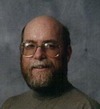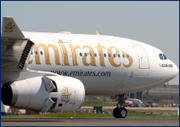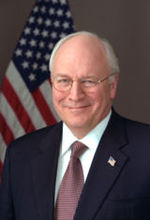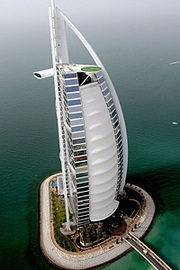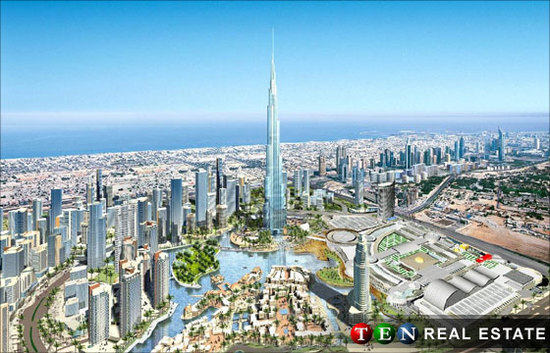The following is a work of fiction.
It is the third in a series of sci-fi novels of the type known as
alternate history. What’s different is that this series takes place in
our time, with characters familiar in your real life.
The first book in the series, The Chinese Century, was written late 2004. Its table of contents is here. The second, The American Diaspora, was written in 2005. Its table of contents for that book is here.
Once we have a few chapters set up, I’ll create a table of contents for the book and keep it near each chapter as it is written.
Meanwhile, settle down and relax. Any similarity between the
characters in this book and real people is purely coincidental, purely
a product of imagination, and not meant as real in any way.
The center of the storm felt like a very happy ending.
Air Force 2 had kindly been sent as far as Morocco, where a special Emirates Air jet was waiting. The family had always enjoyed the comforts of the Vice Presidency, but this left their jaws dropping.
Air Force 2 had the feeling of a 1960s den attached to an economy-class cabin. This was a luxury apartment. A queen-size bed, a full bath, and a sumptuous living room with a working satellite TV. No bar, but for a man in his mid-60s, with heart problems, this was not a problem.
Lynne settled into one of her romance novels, Mary and her partner made goo-goo eyes at one another, and Elizabeth and the grandkids sat transfixed before the TV. Young Philip had stayed behind, and would soon find himself moving from Latham & Watkins to the State Department. The man himself settled deep into the bed’s cushions, and after a very nice nap, he picked up the phone, pressed two buttons, and was instantly in touch with his host.
“Yes, your highness.
“Quite comfortable.
“No regrets.
“Looking forward to it.
“See you then.
“Quite happy.” He chuckled. “Yes, an unusual sight.”
He smiled, then grimaced as he swung his legs off the bed. His hand moved involuntarily to his chest, then his head. His feet checked the sturdiness of the deck and, leaning against the small wooden night table, he swung himself up, and shuffled toward the shower.
By the time he had changed into a new suit, walked into the lounge and kissed Lynne’s cheek, he could feel a slight tilting forward. A steward stepped forward, whispered in Mrs. Perry’s ear, and she began the process of getting the kids strapped in for landing. Dick and Lynne pulled seat belts around them and held hands all the way down.
The plane taxied to a gate never seen by the public. Two security men in western suits came in, nodded toward the former Vice President, then led him and his party into a lounge, where a delegation in flowing robes was waiting for him, and a young Pakistani woman was waiting to help care for the children.
Two black stretch limousines were seen leaving the airport seperately, for security reasons. They drove through a wonderland of cranes, the busiest construction project in the whole world. Cheney and his hosts sat quietly, the only sound that of the air conditioning, which even in March was working hard.
Finally the limo turned to a private road over water, and after a short while went underground, to the private motor entrance of the Burj Al Arab.
Cheney stayed in the car until the area was secured and his family had arrived, via a different route. They were all escorted into an elevator, where one of the security men passed a card into a slot and pressed a button. The doors opened 30 seconds later, directly into an enormous blue-and-gold suite with three bedrooms, and a spectacular view toward a set of islands designed to look like a map of the world.
An entire staff bowed in unison – a butler, two maids, a cook complete with a tocque, and a second maid who would share the child care. One of the robed men had accompanied the group, and now he spoke.
“I hope this is satisfactory, your Excellency. It is what we call the Presidential suite, and is normally filled at $15,000 the night. Once you are all comfortable we can discuss more permanent quarters, at your convenience.” And with that he bowed, then swept out.
The suite filled nearly the entire floor. Yet the second maid whispered to Elizabeth, Elizabeth nodded to her father, and the grandchildren were then led, with their mother, to a second suite on another floor. Mary then bowed to her father, and with her partner was led to her own rooms. This whole suite would hold just the two of them. Cheney did a brief calculation in his head and guessed the Emir was going to spend as much as $200,000 to host the Cheneys just for this first week.
The butler coughed slightly, handed the now former Vice President a mineral water with ice, then handed Lynne a mimosa. She giggled with pleasure, her first reaction to their “exile,” and the Man knew he had made the right choice.
Given the secrecy attendant to their trip, and the cover story that he was deathly ill, it was decided that their first meeting would be a teleconference. The former Vice President sat comfortably in an office chair, some decaf in a china cup beside him, the door closed to Lynne watching Fox on the satellite in the next room.
His Excellency Sheikh Mohammed, a young man who had taken power just a year earlier, sat comfortably on the other side of the screen, his right hand resting lightly on a blue-covered binder, well-thumbed, which Cheney recognized as the presentation he had given him a month earlier.
“We are honored by your thoughtfulness,” the Sheikh began. “We are honored by your sacrifice, and by your presence.”
“I’ve done everything you asked of me, since the delivery of that manuscript,” Cheney said. “When do I see the new place?”
“At your convenience,” said the Sheikh. “Is your family finding their temporary quarters satisfactory?” Cheney noted with some annoyance the accent on that word temporary.
“My wife would love to see something more permanent, I’m certain, and soon,” Cheney said.
The Sheikh smiled. “Permanent is under construction. But we have many options she will enjoy for the next year, while a permanent arrangement is completed. We were hoping you might enjoy living, how do you say it, over the store?”
“Live inside the tower? I have no idea if Lynne is acrophobic, but you are welcome to present the idea to her.
“Let me move to the more important matter, namely the distribution of shares in this market. We are agreed on that? Your government will contribute half the capital and receive 49% of the shares. Halliburton will contribute half the capital and receive 49% of the shares. I will receive 2% of the shares, and should something happen to me my son-in-law Philip J. Perry will control the interest.”
“That is a fair compromise.” The Sheikh knew Cheney’s original position had been that Lynne would inherit, which just could not be. He did not know about Perry’s pending return to U.S. government service.
“Staffing and quarters?”
“We have cleared space in the DIFC, although we recognize your exchange will not be subject to its controls,” said the Sheikh. “I understand your team came in with Mr. Lesar. Our own people are already at the DIFC. I understand you have seen their dossiers and approved them.”
“They are outstanding,” said Cheney.
“Given the liberal regulations and extensive secrecy we have for financial institutions in the UAE, I do wonder again why this new exchange is necessary.”
“That is the opportunity,” replied Cheney, smiling. “If there is no market for our market, it will fail. I am convinced there is such an opportunity, enough to make me leave my position and even risk my health to prove for you.”
“We are honored, and know both sides in this effort will benefit.” The Sheikh clicked off. Cheney spun in his chair, and the leg hurt barely at all.


